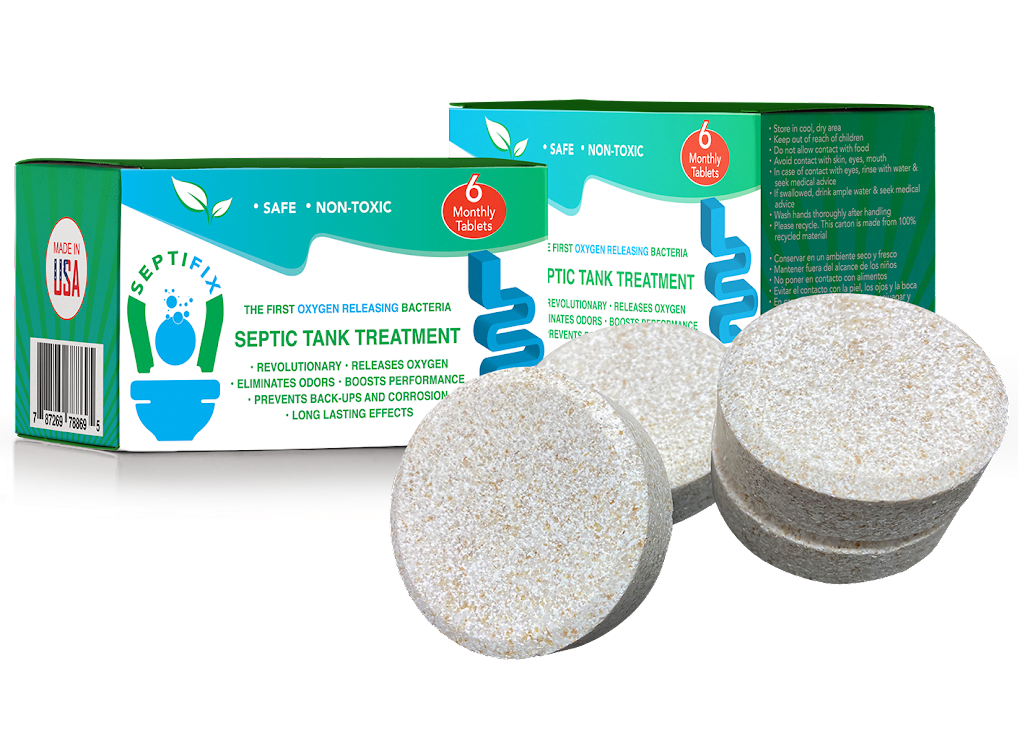Do you think about grease in your septic tank? Most homeowners don’t worry about it much. However, taking care of your septic system means more than just pumping it. You must fight grease, the silent threat. Since 85% of septic tank problems are caused by grease, we must not ignore it. Grease clogs and, drains and hurts the bacteria that break down waste, leading to backups and costly fixes.
Grease can come from more than just pouring fats down the drain. Washing greasy dishes and using some soaps add to the issue. Little by little, fats, oils, and greases (FOGs) build-up. They harden and block things, causing most septic tank problems. Did you know that 40% of issues come from bad FOG disposal?
Throw away grease the right way to lower the risk of septic tank problems. Also, choose septic-safe cleaners. Being careful helps your system last longer and work better. So, remember, keeping grease out is key for a healthy septic system.
How to dissolve grease in your Septic Tank – Key Takeaways
- 85% of septic tank issues are due to grease build-up.
- Blocked drains affect 60% of septic tank owners.
- Proper disposal of FOGs can prevent 40% of septic system problems.
- Using septic tank products can lead to a 50% improvement in dissolving grease.
- Regular septic tank maintenance and monitoring are essential for optimal performance.
Understanding the Impact of Grease on Septic Tanks
Grease in septic tanks forms a crust that stops oxygen from getting to bacteria. This crust causes issues for the tank and the soakaway system. It leads to soakaway damage and field failure.

SEPTIFIX will save you hundreds, if not thousands of dollars each year, because your septic system will run smoothly and you won’t have to worry about calling the pumpers or a plumber for a fix!
Click here to save up to 50%
Blocked drains and less bacteria are signs of this problem. Grease stops oxygen, which is bad for breaking down waste. If this happens, the system can fail.
Over 4 billion gallons of wastewater enter the ground every day. Paint, gasoline, and motor oil should not be allowed in the septic system. These items harm the system’s efficiency.
Putting an effluent filter on a septic tank helps keep solids in. This filter is key for treating the tank. It helps stop backups and soakaway problems.
Grease build-up stops bacteria from managing waste. This can cause system backups and health risks. It can also lead to costly fixes.
Using products like Septifix every month keeps good bacteria levels up. Digesta Waste Trap and Drain Cleaner also help by tackling fats and oils.
Bad habits in disposing of fats, oils, and grease cause build-ups. Restaurants use grease traps to avoid this, which prevents septic system issues.
Caring for your septic tank costs less than replacing it. Use an effluent filter, add biological additives, and dispose of waste properly. For more tips on handling grease in septic tanks, visit this detailed guide.
How to Dissolve Grease in Your Septic Tank
Knowing how to clear out grease is key to keeping your septic system running well. If grease builds up too much, it gets tough, like concrete. This makes it tough to take care of your septic tank. You must choose the right methods and chemicals. This ensures you don’t harm the good bacteria that your septic system needs to work right.
Grease Removal Techniques
One way to eliminate grease is to break up the crust you can see. This helps air get into the tank. Air helps good bacteria grow. Using products like Muck Munchers XL helps a lot. They fight fats, oils, and grease, boosting the good bacteria.
Cities spend a lot of money handling fats in sewers, and taxpayers often cover these expenses. Grease can cause big problems, like broken pumps and slow sewer flow. Quick fixes may work in bad cases, but chemicals can kill good microbes, which help break down waste naturally.
Using Septic Tank Additives
Additives made for septic tanks can also break down grease. These additives use natural helpers to keep grease under control. They keep your system balanced. Using them regularly can stop grease from getting out of hand, preventing clogs and system breakdowns.

SEPTIFIX will save you hundreds, if not thousands of dollars each year, because your septic system will run smoothly and you won’t have to worry about calling the pumpers or a plumber for a fix!
Click here to save up to 50%
It’s better to use treatments made just for grease than regular cleaners. Regular detergents might harm your tank’s balance. Natural bacteria-based cleaners are better. They keep your septic system working right over time.
Best Practices for Septic Tank Maintenance
It’s important to take care of your septic tank. Doing so avoids problems like drain field overload and backups. It helps your system work well for longer and keeps you from spending a lot on repairs.
Proper Disposal of FOGs (Fats, Oils, Greases)
It’s key to get rid of fats, oils, and greases (FOGs) the right way. Instead of pouring them down the sink, put them in containers. Or let them harden and then throw them away. This step keeps grease from building up and blocking your system.
Places like restaurants might use a grease trap to handle a lot of FOGs. A grease trap can stop a lot of grease from getting into the septic system, helping the system last longer.
Regular Inspection and Treatment
Checking your septic system often is key. You should look at it every year and pump it out every three to five years or as needed. Pumping it regularly prevents contamination and system failure.
Adding septic tank treatments like Muck Munchers every month is good. They keep the bacteria level steady for waste breakdown. However, the EPA says tanks with parts like pumps need cleaning more often.
It is also important to use water wisely. A person uses about 70 gallons a day, which affects the tank. Being smart with water use helps avoid too many maintenance checks and prevents the septic system from getting too full.

Caring for the drain field is key, too. Don’t water it too much, and keep cars and trees away to avoid damage. Check for leaks often. Throw away things like wipes and cooking oil right away. Doing so helps your system work better.
For more tips, the ABC-Septic Guide on Septic Tank Maintenance has lots of good advice.
How To Dissolve Grease in Your Septic Tank – Conclusion
Keeping your septic system free of grease is key to its long life and good work. By knowing how grease affects your septic tank, you can prevent fats, oils, and greases from building up. It’s essential to throw away FOGs correctly and use the right additives for your septic tank.
Having your septic system checked and treated often is very important. Using septic tank treatments and keeping the right bacteria levels with additives helps a lot. Adding active yeast is a good move. It breaks down solid waste, which keeps your system running well. This reduces the chance of failures and expensive fixes.
Following the pumping schedule for your place, like a home or restaurant, is also crucial. It helps stop blockages and keeps you following the rules. Learning about the benefits of cleaning your septic tank shows how it saves money and protects nature. Using the best septic tank cleaners makes a big difference. Now you know how to dissolve grease in Your Septic Tank. Take action now!
FAQ
How does grease impact the septic tank system?
Grease can quickly clog up your system. It can block drains and stop bacteria from breaking down waste. This may cause bad drainage, backups, and expensive fixes.
What are the best methods for reducing grease build-up in a septic tank?
Don’t pour fats, oils, and greases down the drain. Instead, collect them in containers or let them harden for the trash. Use biologically-based treatments regularly.
How can I effectively dissolve grease in my septic tank?
Break up visible grease layers to let oxygen in. Use treatments like Muck Munchers XL or Digesta Waste Trap and Drain Cleaner. They eat away FOGs and boost good bacteria. For tough blockages, try a fast “shock treatment”.
Are there any septic tank additives that help with grease removal?
Yes, products like Muck Munchers XL work well. They grow the right bacteria to eat grease and keep the system healthy.
How often should I inspect and treat my septic tank to prevent grease-related issues?
Check it every month and use products like Muck Munchers. It helps you spot grease early and keeps waste breaking down right.
What is a grease trap, and how does it help in septic system care?
A grease trap catches FOGs in places like restaurants before they get to the septic system. It stops blockages and keeps bacteria balanced, making the septic system healthy.
Can I use regular detergents to clean grease from my septic system?
Using regular detergents is not good. They can kill important bacteria. Choose cleaners that are safe for septic systems.

SEPTIFIX will save you hundreds, if not thousands of dollars each year, because your septic system will run smoothly and you won’t have to worry about calling the pumpers or a plumber for a fix!
Click here to save up to 50%


